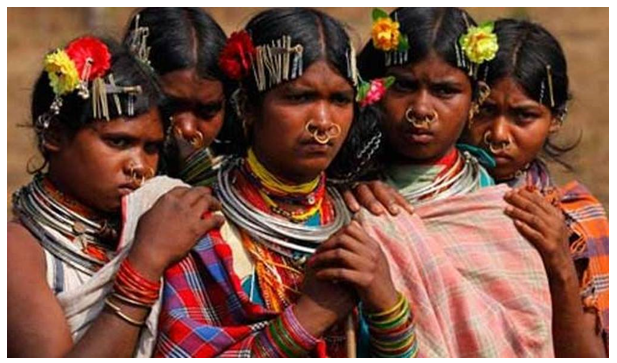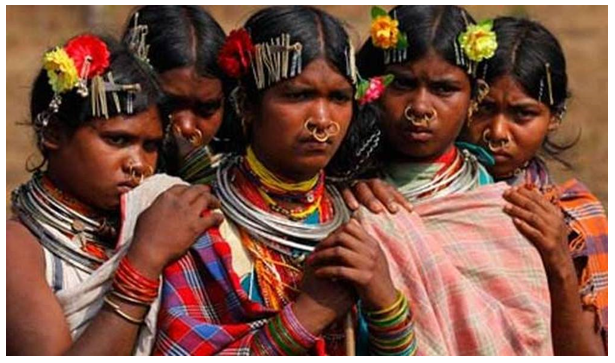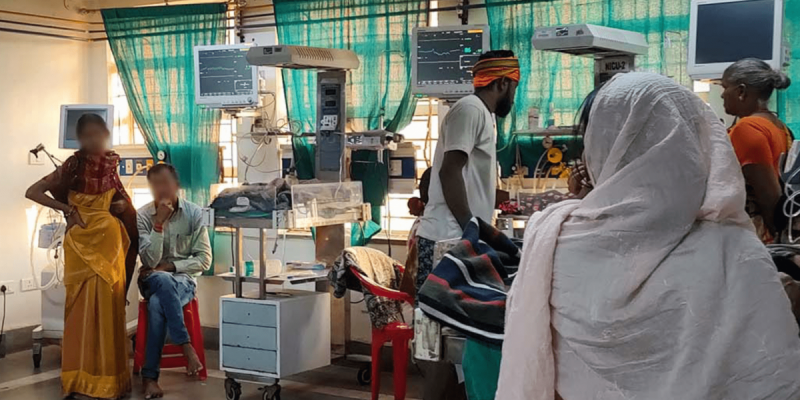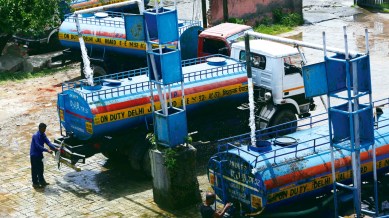- Courses
- GS Full Course 1 Year
- GS Full Course 2 Year
- GS Full Course 3 Year
- GS Full Course Till Selection
- MEP (Mains Enrichment Programme) Data, Facts
- Essay Target – 150+ Marks
- Online Program
- GS Recorded Course
- NCERT- First Ladder
- Polity
- Geography
- Economy
- Ancient, Medieval and Art & Culture AMAC
- Modern India, Post Independence & World History
- Environment
- Governance
- Science & Technology
- International Relations and Internal Security
- Disaster Management
- Ethics
- Current Affairs
- Indian Society and Social Issue
- CSAT
- 5 LAYERED ARJUNA Mentorship
- Public Administration Optional
- ABOUT US
- OUR TOPPERS
- TEST SERIES
- FREE STUDY MATERIAL
- VIDEOS
- CONTACT US
Health Facilities for Tribal Women Report
Health Facilities for Tribal Women Report
10-08-2023

Latest Context:
Recently, the parliamentary committee on the empowerment of women tabled the “Health Facilities for Tribal Women” report in the parliament.

Findings of the report are:
- The committee has found that a huge population of tribal women suffer from malnutrition, a high infant mortality rate (41.5%) and communicable diseases like malaria, tuberculosis etc.
- There is no separate database on tribal health conditions like Maternal Mortality Rate (MMR).
- It found that prevalence of Sickle Cell Disease (SCD) is higher in tribal people due to absence of effective treatment.
- Child marriage in tribal girls causes early pregnancy and other general health risks.
Recommendations of the report are:
- The report recommended that Ministry of Tribal Affairs should work with Ministry of Health and Family Welfare (MoHFW) to gather central health data for tribals with separate classifications like girl children, women of various age groups etc.
- To link “Swasthya Portal” to various government databases such as “POSHAN Tracker” etc.
- To establish special wing in hospitals to treat Sickle Cell Disease (SCD).
- To make special action plan to retain tribal girl child in school and to develop alternate learning program for 'out of school' girl child.
What are the challenges faced by Tribal Women?
- Gender Inequality: Many tribal societies are highly patriarchal, leading to limited decision-making power, lack of access to resources, and restricted participation in community affairs for women.
- Limited Education: Many tribal communities lack proper educational infrastructure, which disproportionately affects tribal girls. This limits their opportunities for personal growth, employment, and participation in modern society.
- Healthcare Access: Tribal women often lack access to proper healthcare facilities, leading to higher maternal and infant mortality rates. Geographical isolation, cultural barriers, and inadequate healthcare infrastructure contribute to this problem.
- Violence and Discrimination: Tribal women can be subjected to various forms of violence, including domestic abuse and discrimination. Traditional norms and practices may promote harmful practices like child marriage and forced labour.
- Land and Resource Rights: Land and resource ownership is often communal in tribal communities, but changing land-use patterns, government policies, and development projects can threaten the traditional resource rights of tribal women and their communities.
- Livelihood Challenges: Economic opportunities are often limited in tribal areas due to factors like geographical isolation, lack of access to markets, and limited skills training. Tribal women may engage in subsistence agriculture or informal labour, facing exploitation and low income.
- Cultural Displacement: Rapid modernization and development projects can disrupt tribal cultures, leading to loss of traditional knowledge, languages, and practices. This can particularly impact tribal women's roles and identities within their communities.
- Lack of Legal Awareness: Many tribal women are unaware of their legal rights and protections, making them vulnerable to exploitation and manipulation, especially when dealing with external entities.
- Access to Clean Water and Sanitation: Poor access to clean water and sanitation facilities can have adverse effects on tribal women's health, dignity, and overall well-being.
- Social Stigma: In some cases, tribal women face discrimination not only from the outside society but also within their own communities. This can relate to issues like inter-caste or inter-tribal marriages.
Conclusion and Way Forward:
Efforts to address these challenges should be sensitive to the cultural contexts of tribal communities and involve collaboration between government agencies, NGOs, and local communities. Empowering tribal women through education, healthcare, legal awareness, and economic opportunities can contribute to their overall well-being and help mitigate the various challenges they face.
Must Check: IAS Coaching Centre In Delhi



